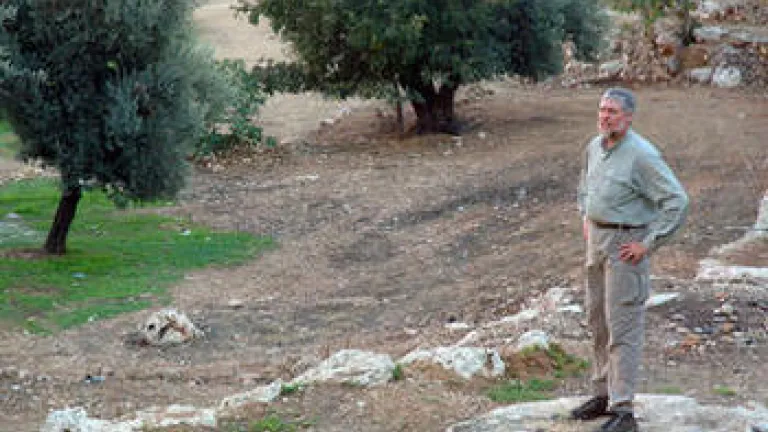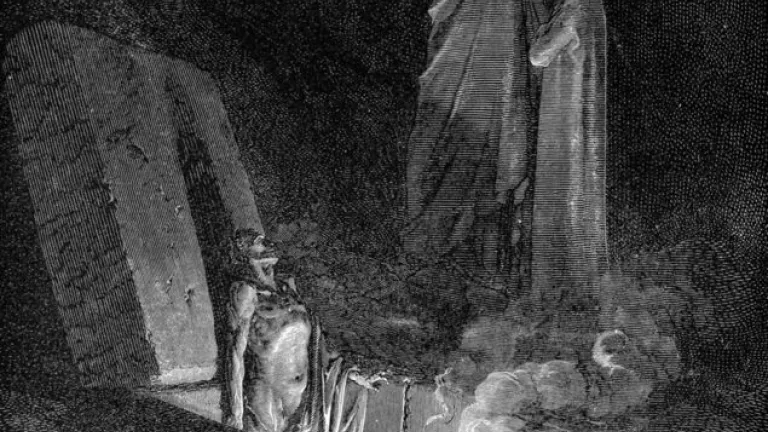Who Will Go to Hell?

What is hell? An in-depth look at the true, biblical meaning of hell.
It’s a word that few really understand, yet most people will go there. It is usually considered the location for the incorrigibly wicked. It might be used to express anger or frustration. It may be used as a destination to assign to those you do not like. However, the hell that is described in the pages of the Bible is a very real place. You may be surprised to learn who goes to that location!
Some Christians believe hell is the place for the souls of the wicked. Others think hell is a state of mind. Some don’t believe hell exists at all. As we’ll see, there are three hells described in the Bible. One of these is hot enough to consume the "soul." We’ll also see that there is a hell for the fallen angels or demons.
Have you ever attended a funeral and been unsure of where the deceased was headed? Most preachers, out of kindness, do not assign a deceased person to hell. However, many in the audience may wonder about the deceased’s future considering his or her lack of genuine spirituality while alive.
What is hell? In the Bible the word hell is mentioned 54 times. It is translated from four different words. The only one in the Old Testament—sheol in the Hebrew—and one in the New Testament—hades in Greek—have the meaning of the grave, a pit or the abode of the dead. Sheol is the only word in the Old Testament from which hell is translated in the King James Version of the Bible. It is translated "hell" 31 times. Hades is translated "hell" 10 times in the New Testament.
In Psalms 6:5 and 30:3 the psalmist speaks of sheol as the grave. Amos the prophet uses sheol to state that one may dig into "hell"—indicating the grave that was in the earth (Amos 9:2, King James Version throughout). When Jonah was in the belly of the great fish (or whale as wrongly translated), he was said to be in "hell" (Jonah 2:2). All of those words for hell are translated from the Hebrew word sheol.
We see in 1 Corinthians 15:55 the word grave translated from hades. In the book of Acts, King David is said to have been in "hell." Since David was a man after God’s own heart (1 Samuel 13:14) and will rule with God in His Kingdom (Jeremiah 30:9), he would not have gone to the hell that is traditionally pictured for the incorrigibly wicked. Notice Acts 2:27, 29 where David is in "hell" or the grave, but with the promise that he will not remain there forever. He will be resurrected from "hell" (hades) or the grave.
So, the first "hell" we’ve looked at is simply the grave—the place of the dead, both good and evil!
Another "hell" of the Bible is far hotter than the traditional view of hell. The second "hell" is translated from the Greek word gehenna and literally means the Valley of Hinnom, a place outside Jerusalem where trash was burned. Gehenna is also associated with fire and is called hell fire (Matthew 5:22) or the lake of fire (Revelation 20:15).
This second "hell" is a place where the incorrigible will be sent as a final punishment after the last judgment. If they have deliberately turned from God, they will be resurrected and cast into gehenna (hell) and burned completely (see Revelation 20:14 and Malachi 4:1-3, which describes the wicked as ashes under the feet of the righteous). God will destroy all those who deliberately refuse to submit to Him once they know Him.
The third "hell" refers to the restraint of the demons. Tartaroo is used in only one place in the Bible (2 Peter 2:4) and is used only in reference to the demons being chained or restrained until the time of their judgment by God.
The concept of heaven and hell in traditional Christianity heavily depends on the doctrine of the immortality of the soul. Yet, in the Bible, the phrase immortal soul is nowhere to be found.
On the contrary, the word soul is translated from the Hebrew and Greek words nephesh and psuche, which mean "life." Animals are called nephesh, and nephesh (whether human or animal) can die (see Genesis 1:20, 24, where nephesh is translated "creature"; Ezekiel 18:4, 20; 22:27; Psalm 33:19). The psuche can also die as shown in Matthew 10:28 and Revelation 16:3.
So, we see that human beings will go to hell (the grave) when they die, but they will be resurrected from the grave. Some will be resurrected to eternal life and others to judgment. Those who have deliberately rejected God and His ways will be burned up in gehenna (hell) fire (Revelation 20:14). The demons await the time of final judgment in yet another "hell"—tartaroo —their condition of imprisonment here on earth, restrained from venting their full fury on mankind and reserved to judgment at the end (Jude 6).
Thank God the day is coming when there will be no more death or sorrow (Revelation 21:4-5). At that time, there will no longer be a hell—the grave—for human beings.






